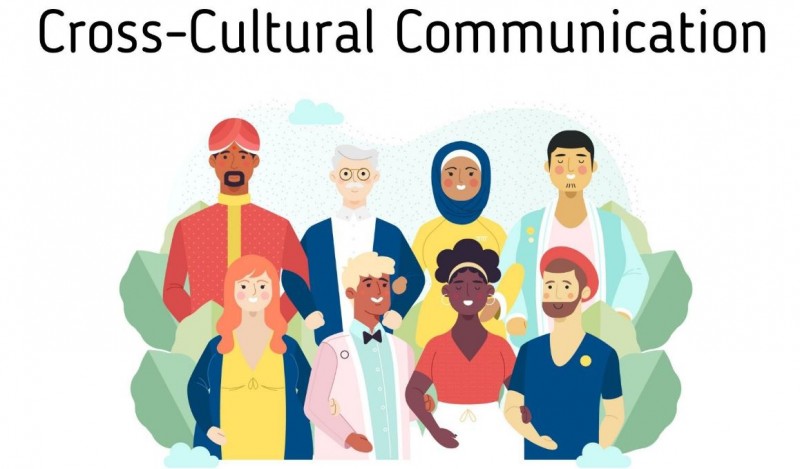
In a world that is becoming increasingly interconnected, cultural exchange and cross-cultural understanding play a crucial role in fostering harmony, empathy, and appreciation among diverse communities. These processes of sharing knowledge, experiences, and traditions between different cultures have numerous benefits that extend beyond personal growth to encompass social, economic, and educational aspects. In this article, we will explore the significant advantages of cultural exchange and cross-cultural understanding and how they contribute to a more inclusive and enlightened society.
1. Introduction
Cultural exchange refers to the process of sharing ideas, values, traditions, and perspectives between individuals or groups from different cultural backgrounds. It involves open communication and interaction, allowing people to gain insights into diverse worldviews and ways of life. Cross-cultural understanding, on the other hand, is the ability to appreciate, respect, and empathize with other cultures, leading to a deeper comprehension of the shared human experience.
2. Enhancing Cultural Awareness and Sensitivity
One of the primary benefits of cultural exchange and cross-cultural understanding is the development of cultural awareness and sensitivity. By engaging with different cultures, individuals become more attuned to the nuances of various customs, traditions, and social norms. This heightened awareness fosters respect for cultural diversity and enables individuals to navigate cross-cultural interactions with greater sensitivity.
3. Promoting Tolerance and Acceptance
Cultural exchange serves as a powerful tool for promoting tolerance and acceptance. As individuals learn about different cultures, they gain a broader perspective and realize that diversity is a strength rather than a source of division. By embracing and celebrating cultural differences, societies can cultivate an environment of inclusivity, where everyone feels valued and accepted.
4. Fostering Global Citizenship
Cultural exchange and cross-cultural understanding are essential in fostering global citizenship. When individuals engage in cultural exchange, they develop a sense of belonging to a global community. They become more aware of global challenges, such as climate change, poverty, and human rights, and are motivated to contribute to positive change on a global scale.
5. Encouraging Mutual Learning and Growth
Cultural exchange provides an opportunity for mutual learning and growth. Through interactions with people from different cultures, individuals can exchange knowledge, skills, and ideas. This sharing of perspectives leads to personal and intellectual growth, expanding one's horizons and challenging preconceived notions.
6. Breaking Down Stereotypes and Prejudices
One of the most significant benefits of cultural exchange is its potential to break down stereotypes and prejudices. By engaging directly with individuals from different cultures, people can challenge their own biases and confront misconceptions. This process humanizes "the other" and fosters empathy, compassion, and understanding.
7. Inspiring Creativity and Innovation
Cultural exchange sparks creativity and innovation by exposing individuals to new ways of thinking and problem-solving. When people encounter different cultural practices and perspectives, they are inspired to think outside the box and explore alternative approaches. This cross-pollination of ideas fuels innovation and can lead to groundbreaking advancements in various fields.
8. Boosting Economic Opportunities
Cultural exchange also has economic benefits. As people from different cultures interact, they create opportunities for trade, tourism, and business collaborations. By capitalizing on cultural diversity, societies can tap into new markets, attract international investments, and foster economic growth.
9. Facilitating Peaceful Coexistence
Cultural exchange and cross-cultural understanding play a vital role in promoting peaceful coexistence. By fostering dialogue, empathy, and mutual respect, they contribute to resolving conflicts and preventing misunderstandings. When people understand and appreciate each other's cultures, they are more likely to find common ground and work towards peaceful solutions.
10. Strengthening International Relations
Cultural exchange acts as a bridge that strengthens international relations. By fostering connections and building friendships across borders, it promotes diplomacy, cooperation, and mutual trust. These intercultural connections lay the foundation for collaborative efforts in areas such as education, science, arts, and social development.
11. Conclusion
Cultural exchange and cross-cultural understanding bring numerous benefits to individuals, communities, and societies at large. They enhance cultural awareness, promote tolerance and acceptance, foster global citizenship, encourage mutual learning and growth, break down stereotypes, inspire creativity and innovation, boost economic opportunities, facilitate peaceful coexistence, and strengthen international relations. Embracing cultural exchange and nurturing cross-cultural understanding is key to building a harmonious and inclusive world.
Massive Strange Shelf Cloud Appears In Haridwar, Details Inside
Supreme Court's Landmark Decision: Stays Arrest of Lawyer in Manipur
Fatal Poisoned Cough Syrup Traced to India Exposes Regulatory Gaps in Pharmaceutical Industry